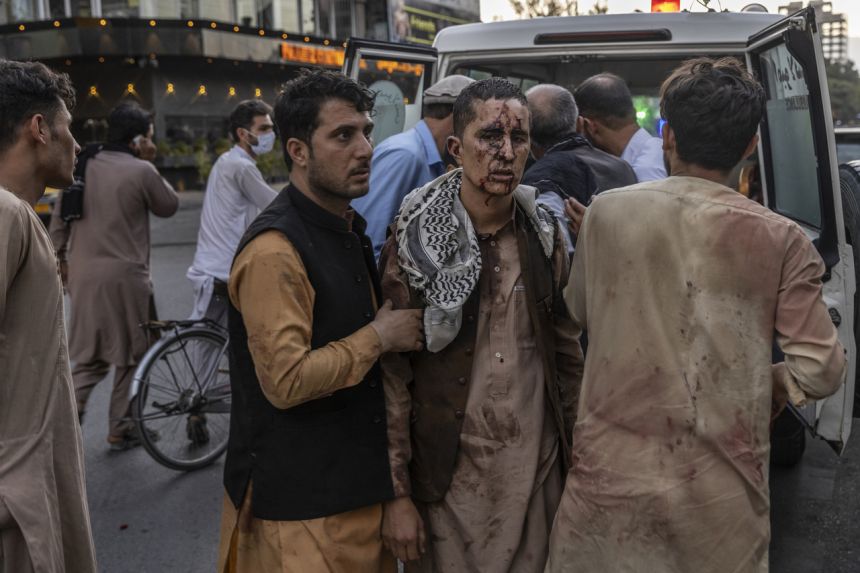Australia/Israel Review
Deconstruction Zone: Islamism’s brutal face on display
Sep 17, 2021 | Ben Cohen

Any notion that the worst days of Islamist terrorism are long behind us was brutally shattered at Kabul Airport on Aug. 26, as twin bombs ripped indiscriminately through Afghan civilians and US and other foreign servicemen trying to complete the desperate evacuation of thousands of people for whom Taliban rule represents the most terrible fate.
Gen. H.R. McMaster, a former US national security advisor who served as deputy commander of the international force in Afghanistan, put it succinctly in the hours that followed the bloodshed in Kabul. “Maybe this moment is the time that we can stop our self-delusion that these groups are separate from one another and recognise that they are utterly intertwined and interconnected, and what we are seeing is the establishment of a terrorist, jihadist state in Afghanistan… And all of us will be at much greater risk as a result.”
His underlying argument is that talking up divisions between the Taliban and fellow Islamist fanatics – such as ISIS-K, the Afghan branch of the Da’esh terrorist organisation that carried out the Kabul Airport bombing – elides the point that these groups are united in their fundamental worldview. On the ideological front, the late al-Qaeda leader Osama bin Laden’s promise of a war against “crusaders and Jews” still holds firm, which means terrorism against Western interests and Western targets, most of whom will be defenceless civilians. It also means that ordinary Muslims will continue to be their principal and most numerous victims.
The “intertwined” connections described by McMaster inside Afghanistan can be seen in the region more broadly. At the same time that the Taliban have conquered Afghanistan, Iran has appointed a new cabinet composed of men with a direct, personal role in terrorism, torture and other systemic violations of human rights, all of whom have extensive connections with Iran’s regional proxies, like Hezbollah in Lebanon.
In the past, many analysts scorned the contention that there could be a strategic connection between the austere Sunni Islam adhered to by the Taliban and the Shi’ite millenarian Islam that defines the Teheran regime. It is also true that the Taliban and the Iranians have come to blows in the distant past.
Even so, what unites them is, in the last analysis, more important than what divides them. Taliban delegations have visited Iran on at least two occasions this year, in January and in July, with the outgoing foreign minister Javad Zarif recently praising their “noble … jihad against the foreign occupiers.” In part, the Iranians are simply betting on the right horse, correctly deducing that further conflict with the Taliban is unnecessary given that the Taliban are once more the masters of Afghanistan. But more significantly, they share the common goal of banishing the United States and its allies from the region, including the State of Israel.
This brings me back to Iran’s new cabinet. It is not surprising that the Islamic Republic’s new President, Ebrahim Raisi – a sadist who, as a regime prosecutor in the 1980s, supervised beatings, rapes and mass executions of prisoners – would appoint a bunch of thugs to his cabinet.
Iran’s new Defence Minister is Ahmad Vahidi, returning to the post for the second time in his career, having previously occupied it during the term of the Holocaust-denying former President Mahmoud Ahmadinejad. The Vice President for Economic Development is Mohsen Rezaei, the commander for 17 years of Iran’s Islamic Revolutionary Guard Corps (IRGC). Both Vahidi and Rezaei are fugitives from justice – specifically, for their roles in the July 1994 Iranian-sponsored bombing of the AMIA Jewish Centre in Buenos Aires, the bloodiest act of antisemitic terrorism in more than half a century, in which 85 people lost their lives.
Across the Middle East and the Islamic world, extremist regimes and terrorist groups are rejoicing in the fact that the US presence and reputation in their region are a shadow of what they were ten years ago.
In that light, there is no reason for the Biden Administration to continue its talks with the Iranians in Vienna over their nuclear program unless it wants to look even more gullible in the eyes of America’s Islamist adversaries. It also needs to review the existing sanctions on Iran and extend these where necessary.
None of these moves can be said to be game-changers. But they speak to the lack of a broader vision for the Middle East on the part of successive US administrations, save for the ambition of getting out as quickly as possible. As McMaster reminded us, the region won’t let us go so easily.






